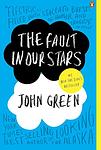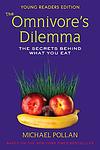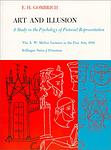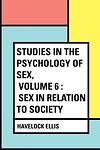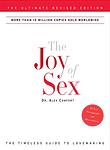The Greatest "Health & Fitness" Books of All Time
Click to learn how this list is calculated.
This list represents a comprehensive and trusted collection of the greatest books. Developed through a specialized algorithm, it brings together 300 'best of' book lists to form a definitive guide to the world's most acclaimed books. For those interested in how these books are chosen, additional details can be found on the rankings page.
Genres
The "Health & Fitness" category encompasses a broad range of books aimed at helping readers achieve and maintain optimal physical and mental well-being. Titles within this genre offer insights into various aspects of health, including nutrition, exercise, weight management, and mental health strategies. From detailed guides on specific workout routines and dietary plans to holistic approaches for stress reduction and wellness, these books often provide practical advice, scientific research, and personal anecdotes to motivate and educate individuals seeking to improve their health. Whether you're a fitness enthusiast looking for advanced training techniques, someone starting a journey toward a healthier lifestyle, or a professional seeking the latest in health-related research, the "Health & Fitness" category offers resources to support a wide array of health goals and interests.
Countries
Date Range
Reading Statistics
Click the button below to see how many of these books you've read!
Download
If you're interested in downloading this list as a CSV file for use in a spreadsheet application, you can easily do so by clicking the button below. Please note that to ensure a manageable file size and faster download, the CSV will include details for only the first 500 books.
Download-
26. The Road Less Travelled by M. Scott Peck
This self-help book explores the concept that life is difficult and filled with problems, but we can overcome these issues through discipline, love, and spiritual growth. It encourages readers to confront their personal problems head-on, rather than avoiding them, and to accept responsibility for their actions. The book also delves into the nature of love, suggesting it is less about feelings and more about the act of will. Finally, it discusses the importance of spiritual growth and understanding in achieving a fulfilled life.
-
27. The Hero with a Thousand Faces by Joseph Campbell
This book explores the theory that important myths from around the world which have survived for thousands of years all share a fundamental structure, which the author calls the "monomyth." It outlines the stages of this monomyth, which include a hero's call to adventure, a descent into the underworld, and a triumphant return. The book also discusses how these universal patterns can provide a framework for understanding human experience and the world around us.
-
28. The Immortal Life of Henrietta Lacks by Rebecca Skloot
The book tells the story of Henrietta Lacks, a poor African American tobacco farmer whose cells, taken without her knowledge in 1951, became one of the most important tools in medicine, vital for developing the polio vaccine, cloning, gene mapping, and more. Henrietta's cells have been bought and sold by the billions, yet she remains virtually unknown, and her family can't afford health insurance. The book explores the collision between ethics, race, and medicine; of scientific discovery and faith healing; and of a daughter consumed with questions about the mother she never knew.
-
29. The Fault in Our Stars by John Green
This novel follows the poignant journey of two teenagers, both cancer patients, who meet in a support group and fall in love. Their shared experiences and unique outlook on life and death bring them closer together, and they embark on a trip to Amsterdam to meet a reclusive author they both admire. Through their journey, they explore the harsh realities of living with a terminal illness while also experiencing the beautiful and tragic aspects of first love.
-
30. Nana by Émile Zola
"Nana" is a novel that follows the life of a young woman in 19th century France who rises from the streets to become a high-profile courtesan. Her physical charm and manipulative nature allow her to maintain control over her high-status lovers, leading them to financial ruin and even death. The novel is a critique of the moral decay of the French society, highlighting the destructive power of lust and greed.
-
31. Children of Crisis by Robert Coles
"Children of Crisis" is a deeply moving exploration of the lives of children in various challenging circumstances. The author, a renowned psychiatrist, documents his experiences working with children facing poverty, racial tension, and family disruption in the United States. The book provides insights into the resilience, adaptability, and strength of children, offering a profound understanding of their psychological responses to crisis and adversity.
-
32. The Omnivore's Dilemma by Michael Pollan
The book delves into the question of what we should have for dinner. It explores the paradox of the omnivore's dilemma, detailing the food chains that link farm to table, and explaining how the industrial revolution has changed the way we eat. The book also discusses the implications of our modern diet on our health and the environment, suggesting that we should return to more traditional methods of food production and consumption. It advocates for a more conscious and sustainable approach to eating.
-
33. Suicide by Emile Durkheim
This classic sociological analysis explores the phenomenon of suicide and its social causes. Written by one of the world's most influential sociologists, this book argues that suicide is more than just an individual decision, but is influenced by social and societal factors. By examining suicide rates among different social categories, the author demonstrates that societal factors such as marital status, religion, and economic stability significantly affect suicide rates. The book is a pioneering work in sociological research, introducing innovative theories and methods that have since become standard in the field.
-
34. The Uses of Enchantment by Bruno Bettelheim
"The Uses of Enchantment" is a psychological analysis of fairy tales and their importance in childhood development. The book argues that these stories allow children to navigate their emotions and understand aspects of life they are yet to experience. By exploring various themes, such as separation anxiety, oedipal conflict, and sibling rivalry, through well-known fairy tales, the author demonstrates how these narratives contribute to a child's moral education and understanding of the human nature.
-
35. On Aggression by Konrad Lorenz
"On Aggression" is a scientific study that explores the concept of aggression in both animals and humans from an ethological (study of animal behavior) perspective. The author argues that aggression is an innate and necessary instinct that has helped species survive and evolve. However, he also emphasizes that this instinct, when unchecked or misdirected, can lead to destructive behavior and violence. The book provides a comprehensive analysis of the biological roots of aggression, its role in the evolution and survival of species, and its implications for human society.
-
36. Smoking and Health by Surgeon General
This book provides a comprehensive overview of the impact of smoking on health, as well as the societal and economic consequences of tobacco use. It delves into the scientific evidence linking smoking to various diseases, including lung cancer, heart disease, and respiratory illnesses. Additionally, the book discusses the addictive nature of nicotine, the marketing strategies of tobacco companies, and the effectiveness of public health interventions aimed at reducing smoking rates. It serves as a valuable resource for anyone interested in understanding the full scope of the tobacco epidemic.
-
37. The Emperor of All Maladies: A Biography of Cancer by Siddhartha Mukherjee
This book is a comprehensive history of cancer, its treatments, and the ongoing search for a cure. It presents an in-depth exploration of the disease from its first documented appearances thousands of years ago through the epic battles in the twentieth century to cure, control, and conquer it, to a radical new understanding of its essence. The book also discusses the politics of cancer research, the impact of patient activism, and the complex and often fraught relationships between researchers, oncologists, and patients.
-
38. Microbe Hunters by Paul de Kruif
"Microbe Hunters" is a classic work of scientific literature that chronicles the pioneering work of early microbiologists. The book brings to life the groundbreaking discoveries of scientists who dedicated their lives to understanding the invisible world of microbes. These pioneers include figures like Louis Pasteur and Robert Koch, who made significant strides in the field of bacteriology. The book is a blend of scientific facts, biographical sketches, and the author's own infectious enthusiasm for the subject matter, making it an engaging read for both scientists and lay readers alike.
-
39. Art and Illusion by Ernest H. Gombrich
"Art and Illusion" is a comprehensive study of the psychology of pictorial representation. The book explores how artists from the Renaissance to the present day have used illusions to enhance their work, and how our brains interpret these illusions. It delves into the science behind our perception of reality and how it influences art, providing a unique perspective on the intersection between psychology, philosophy, and aesthetics. The book also discusses the concept of 'schema' and 'correction' in an artist's work, and how the artist's perception of the world is constantly evolving.
-
40. King Solomon's Ring by Konrad Lorenz
This book is a fascinating exploration of animal behavior by a renowned zoologist. It delves into the author's personal experiences and observations of animals in their natural habitats, focusing particularly on birds, dogs, and jackdaws. The author uses these observations to draw conclusions about animal psychology and behavior, often comparing it to human behavior. The book is named after the biblical King Solomon, who was said to have a ring that allowed him to understand the language of animals.
-
41. Studies in the Psychology of Sex by Havelock Ellis
This book explores the psychology of sex, delving into a wide range of subjects including sexual inversion, erotic symbolism, sexual impulse in women, and the sexual impulse in men. It also covers the analysis of the sexual instinct, its development in childhood and adolescence, and its manifestations in adulthood. The author uses a scientific approach, drawing on extensive research and case studies to provide a comprehensive understanding of the topic. It's considered a pioneering work in the field of sexology.
-
42. The Joy of Sex by Alex Comfort
This book serves as a comprehensive guide to human sexual behavior, offering detailed illustrations and instructions on various sexual techniques and positions. The author emphasizes the importance of mutual consent, respect, and emotional intimacy in sexual relationships, and promotes a positive and open-minded attitude towards sex. The book also provides advice on sexual health and contraception, making it a valuable resource for anyone seeking to enhance their sexual knowledge and experiences.
-
43. No Laughing Matter by Angus Wilson
"No Laughing Matter" is a satirical novel that charts the lives of the six children of the Matthews family, from World War I to the 1960s. The narrative is a social commentary on the changing face of Britain during this period, with each child representing different aspects of the British society. The book highlights the family's struggles with their own personal issues, as well as broader societal changes, such as the decline of the British Empire and the rise of modernity.
-
44. Down There by J. K. Huysmans
"Down There" is a novel that follows the life of a Parisian novelist who is disillusioned with his mundane life and seeks solace in the occult. His journey leads him to a satanic priest who introduces him to the dark world of satanism. The protagonist becomes deeply involved in this world, experiencing hallucinations and disturbing visions. The book is a deeply psychological exploration of the human fascination with evil and the macabre, set against the backdrop of late 19th-century Parisian society.
-
45. A Day in Spring by Ciril Kosmač
"A Day in Spring" is a poignant narrative set in a small Slovenian village during World War II. The story follows a young boy who, after losing his parents, is taken in by a kind-hearted, yet poor, elderly couple. As the war rages on, the village is caught in the crossfire and the boy is forced to confront the harsh realities of life, death, and survival. The book offers a gripping portrayal of the human spirit's resilience in the face of adversity.
-
46. Memoirs of My Nervous Illness by Daniel Paul Schreber
The book is a personal account of a prominent German judge's struggle with severe mental illness. It provides a detailed and vivid description of his experiences with psychosis, hallucinations, and delusions, which he attributes to divine intervention and cosmic forces. The author's attempt to understand and make sense of his condition forms the core of this memoir, and his insights have been influential in the fields of psychology and psychiatry. His narrative is a unique exploration of the mind and its relationship with reality, providing an intimate perspective on mental illness.
-
47. Back by Henry Green
"Back" is a novel about a British man who returns home after being a prisoner of war during World War II. He struggles to adjust to civilian life and is haunted by the loss of his lover, who died while he was away. As he tries to move on, he becomes entangled in a complicated relationship with his lover's half-sister, leading to a poignant exploration of love, loss, and the human capacity for resilience.
-
48. Thinking, Fast and Slow by Daniel Kahneman
The book delves into the two systems that drive the way we think—System 1, which is fast and intuitive, and System 2, which is slow and deliberate. The author, a Nobel laureate, explores how these systems shape our judgments and decision-making. He presents several groundbreaking experiments that have shaped our understanding of human thought, revealing where we can trust our intuitions and how we can tap into the benefits of slow thinking. The book also discusses how our cognitive biases often lead to errors in judgment and affect our decision-making processes.
-
49. Three Case Histories by Sigmund Freud
"Three Case Histories" is a compilation of three of the most famous case studies by a renowned psychoanalyst, exploring the complexities of the human mind. The book includes the cases of 'Little Hans', a boy with a phobia of horses, 'The Rat Man', an obsessive-compulsive patient, and 'The Wolf Man', a wealthy Russian aristocrat suffering from a variety of psychoneurotic symptoms. The author uses these cases to demonstrate his theories on psychoanalysis, childhood sexuality, the interpretation of dreams, and the subconscious.
-
50. Insight: A Study of Human Understanding by Bernard Lonergan
The book is a comprehensive exploration of human understanding and cognition from a philosophical perspective. It delves into the nature of knowledge, the process of knowing, and the dynamics of inquiry and learning. The author presents a detailed analysis of the human intellect and its operations, investigating the role of insight in decision-making, problem-solving, and discovery. The book also discusses the relationship between understanding and other cognitive faculties such as perception, memory, and imagination, while examining the impact of cultural, social, and historical factors on human understanding.
Reading Statistics
Click the button below to see how many of these books you've read!
Download
If you're interested in downloading this list as a CSV file for use in a spreadsheet application, you can easily do so by clicking the button below. Please note that to ensure a manageable file size and faster download, the CSV will include details for only the first 500 books.
Download


